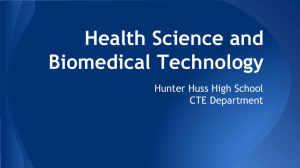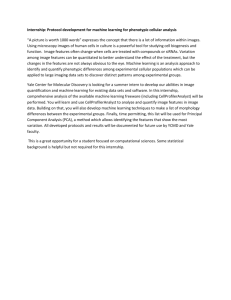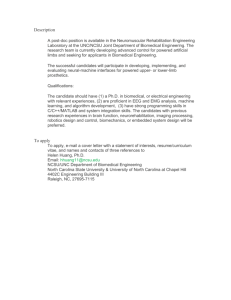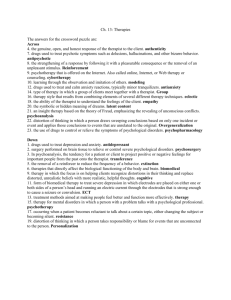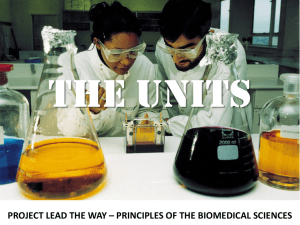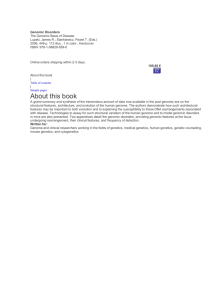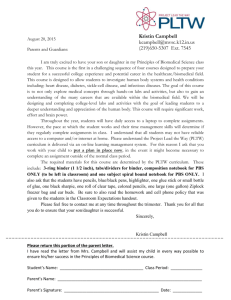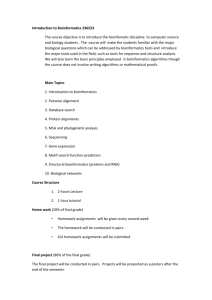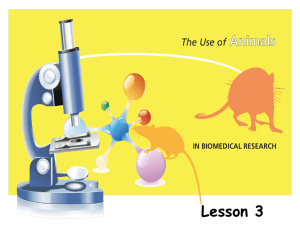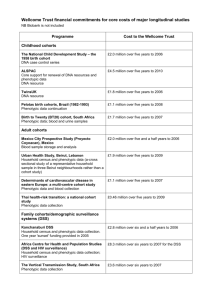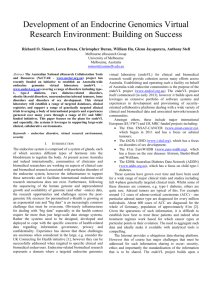endoVL - University of Melbourne
advertisement
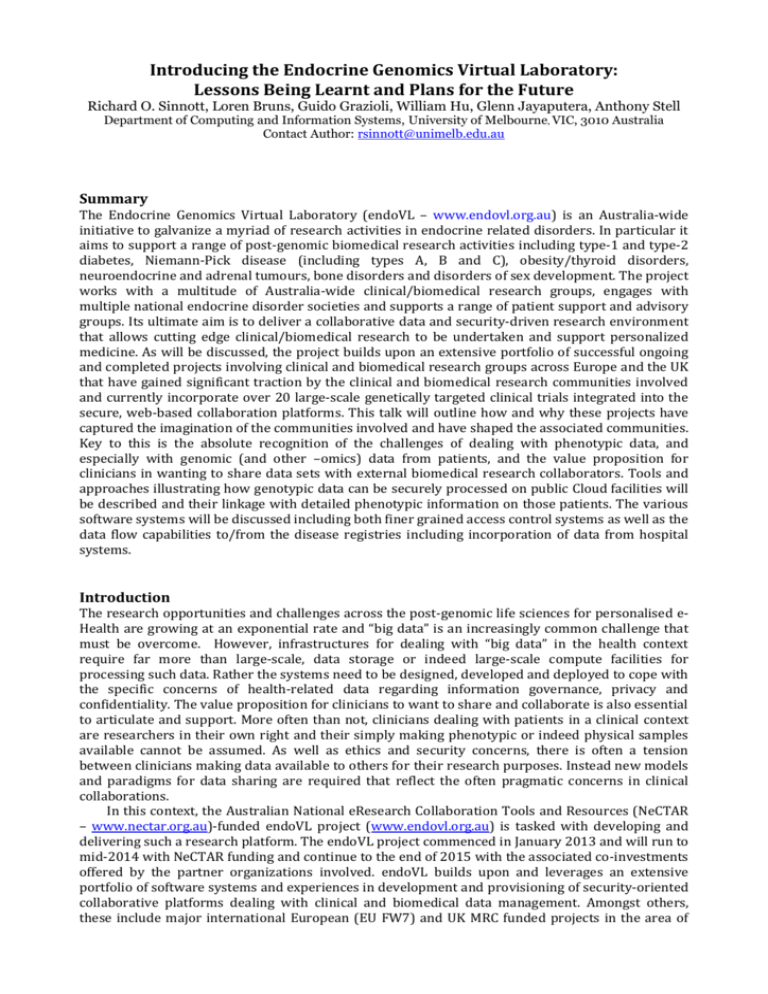
Introducing the Endocrine Genomics Virtual Laboratory: Lessons Being Learnt and Plans for the Future Richard O. Sinnott, Loren Bruns, Guido Grazioli, William Hu, Glenn Jayaputera, Anthony Stell Department of Computing and Information Systems, University of Melbourne, VIC, 3010 Australia Contact Author: rsinnott@unimelb.edu.au Summary The Endocrine Genomics Virtual Laboratory (endoVL – www.endovl.org.au) is an Australia-wide initiative to galvanize a myriad of research activities in endocrine related disorders. In particular it aims to support a range of post-genomic biomedical research activities including type-1 and type-2 diabetes, Niemann-Pick disease (including types A, B and C), obesity/thyroid disorders, neuroendocrine and adrenal tumours, bone disorders and disorders of sex development. The project works with a multitude of Australia-wide clinical/biomedical research groups, engages with multiple national endocrine disorder societies and supports a range of patient support and advisory groups. Its ultimate aim is to deliver a collaborative data and security-driven research environment that allows cutting edge clinical/biomedical research to be undertaken and support personalized medicine. As will be discussed, the project builds upon an extensive portfolio of successful ongoing and completed projects involving clinical and biomedical research groups across Europe and the UK that have gained significant traction by the clinical and biomedical research communities involved and currently incorporate over 20 large-scale genetically targeted clinical trials integrated into the secure, web-based collaboration platforms. This talk will outline how and why these projects have captured the imagination of the communities involved and have shaped the associated communities. Key to this is the absolute recognition of the challenges of dealing with phenotypic data, and especially with genomic (and other –omics) data from patients, and the value proposition for clinicians in wanting to share data sets with external biomedical research collaborators. Tools and approaches illustrating how genotypic data can be securely processed on public Cloud facilities will be described and their linkage with detailed phenotypic information on those patients. The various software systems will be discussed including both finer grained access control systems as well as the data flow capabilities to/from the disease registries including incorporation of data from hospital systems. Introduction The research opportunities and challenges across the post-genomic life sciences for personalised eHealth are growing at an exponential rate and “big data” is an increasingly common challenge that must be overcome. However, infrastructures for dealing with “big data” in the health context require far more than large-scale, data storage or indeed large-scale compute facilities for processing such data. Rather the systems need to be designed, developed and deployed to cope with the specific concerns of health-related data regarding information governance, privacy and confidentiality. The value proposition for clinicians to want to share and collaborate is also essential to articulate and support. More often than not, clinicians dealing with patients in a clinical context are researchers in their own right and their simply making phenotypic or indeed physical samples available cannot be assumed. As well as ethics and security concerns, there is often a tension between clinicians making data available to others for their research purposes. Instead new models and paradigms for data sharing are required that reflect the often pragmatic concerns in clinical collaborations. In this context, the Australian National eResearch Collaboration Tools and Resources (NeCTAR – www.nectar.org.au)-funded endoVL project (www.endovl.org.au) is tasked with developing and delivering such a research platform. The endoVL project commenced in January 2013 and will run to mid-2014 with NeCTAR funding and continue to the end of 2015 with the associated co-investments offered by the partner organizations involved. endoVL builds upon and leverages an extensive portfolio of software systems and experiences in development and provisioning of security-oriented collaborative platforms dealing with clinical and biomedical data management. Amongst others, these include major international European (EU FW7) and UK MRC funded projects in the area of adrenal tumours (ENSAT-CANCER – www.ensat-cancer.eu); disorders of sex development (www.idsd.org), rare diseases such as Alstrom, Bardet-Biedl and Wolfram (www.euro-wabb.org), and the International Niemann-Pick Disease Registry (www.inpdr.org). These systems have grown over time and have established a significant critical mass of targeted phenotypic and a rich variety of related information, e.g. treatments, surgeries. endoVL builds upon these efforts and adopts the core phenotypic and treatment data models directly, but importantly extends them through the ability to support integrated bioinformatics analysis and data management capabilities leveraging efforts and synergies with the NeCTAR funded Genomics Virtual Laboratory (a partner in endoVL). In particular, endoVL supports integrated next generation sequencing and whole exome data analysis pipelines and essentially their association with detailed phenotypic data of individuals with endocrine disorders. Initial focus has been to support sequencing studies into disorders of sex development. A major challenge here is the different results that bioinformatics data processing can give rise to. When translated into a clinical context, the bioinformatics results have to be consistent and repeatable. The endoVL involves a range of bioinformatics partners across Australia, all of whom received and processed (whole exome) samples from a family of 15 in Indonesia with a range of disorder of sex development and used their own bioinformatics approaches for analysis. The results of this analysis and importantly the variation in results as well as their association with the phenotypic information of patients in the endoVL registry are core aspects of endoVL. This analysed genomic data itself is stored within an established genomic data management system (Leiden Open Variant Database – www.lovd.nl). This genomic database has been extended to cater for the specific needs of the endoVL project so that it can be queried using patient-specific identifiers created through the endoVL clinical registries. This association of detailed phenotypic and genotypic information is a unique aspect of endoVL.
